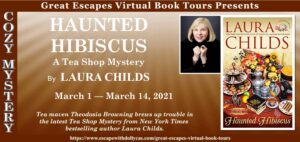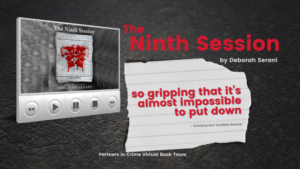Your work is described as crossing genres, how would you describe your work?
Adequate? I think adequate’s a good description… Entertaining, hopefully.
It’s a tough question to answer. The stuff I’m best known for, the Ex-Heroes series, is zombie fiction crossed with superhero fiction, but I also wrote a book called The Eerie Adventures of the Lycanthrope Robinson Crusoe, and that’s a literary classic crossed with H.P. Lovecraft and a dash of werewolf. Cross-genre is one of those terms that’s absolutely correct in most cases but also doesn’t really tell you anything. I mean, a rom-com is cross-genre, but I don’t write rom-coms. Plus I think most really good writing tends to cross genres on one level or another. Salem’s Lot is the halfbreed child of Our Town and Dracula. Michael Crichton pretty much invented the techno-thriller. Lee Child took the western character of the mysterious stranger and made him a retired Army MP, but still has him riding into town to help solve problems. One term I’ve heard a lot lately is “speculative fiction,” and I think that’s a great term. I tend to write in the genre of “what if this happened…” And that covers superheroes, zombies, werewolves, Cthulhu, space travel, time travel, the end of the world, and a lot of other neat stuff.
So really, on one level, I’m just a little kid going “Hey, you know what’d be really cool…?”
How do you approach writing a novel compared to a short story or magazine article?
It’s really three different things. Well, two things and something else… A lizard, maybe. Magazine articles are very structured, which can be freeing or frustrating, depending on the material. It’s freeing because you start with so much of it done. For example, when I wrote for Creative Screenwriting I knew I’d have a short summary of the film, I’d have some key process questions, a few specifics about the film, maybe an experience question or two–and a lot of this is going to end up being quotes from the interview. Wham, bam, done. I’d do the interview and work all the answers into place. The frustrating part is sometimes, in the course of the interview, something really cool comes up and there’s just nothing to do with it. Sometimes you can beg and plead with an editor for more space, but that means taking space away from something else. So usually this article is 1500 words, period, and if something doesn’t fit it doesn’t fit. There were times I could polish off two articles a day once I’d transcribed the interview, and sometimes I’d beat my head on an 800 word piece trying to figure out how to include good material there just wasn’t space for. I got to interview Akiva Goldsman once and he had some wonderful, really brilliant observations about genre material and sci-fi vs fantasy. I think I used two quotes from him in the final article.
Short stories are easier for me. You’ve generally got a bit of flex room, size-wise. The joy of them being a smaller, more concise tale is that they tend to come together pretty much fully formed. You have characters, a situation, a conflict, and you’ve got it. It’s really rare for me to start a short story and not already know how ninety percent of it’s going to go. I’ve got one story coming out called “Mulligan,” and once I had the basic idea and the characters it took me about two days to get a very solid draft. One of my earliest sales was actually a first draft. It got edited a bit by the publisher, but the story that sold was a first draft I wrote in about six hours.
For novels, I tend to scribble a lot of notes to myself when I’m working on whatever happens to be my current project. I end up with a very, very loose outline of character sketches, dialogue, ideas for different moments. I try not to do too much past that because I think sometimes an outline can be limiting. It’s good for screenwriting, where you have to be much more focused and usually have a very strict deadline, but I think in a novel you get a lot more out of it if you give yourself the space to be creative. It’s the difference between having OnStar map out your entire route and just saying “Road trip– we need to be in Boston by the 15th.” Either way you’ve got the same beginning and end, but you’ll get a lot more out of the trip when you’ve got the freedom to stop and see Graceland, the biggest ball of twine, the Sunsphere, and all that. In every book I’ve written so far, there’s something that only came out of it because I had room to explore within my rough outline.
Once I start writing, I try to do at least two thousand words a day, every day. Sometimes when things are going well I’ll hit four or five thousand, but two’s the minimum. My goal is to get a first draft done, because I think on this scale it’s a lot easier to revise something than it is to try to get it perfect the first time. Sometimes this even means skimming over something for now. I don’t like getting bogged down looking up how big a blue whale is, figuring out what day of the week Memorial Day falls on in 2013, or coming up with a reason for character A to get a pistol from character B. If something’s deathly important to the plot, I’ve most likely already got it figured out before I started this draft. If it isn’t, then there’s no reason it can’t get polished later. The goal is to get the first draft done. That means the second draft can be polishing and fact-checking, and the third draft is trimming and cutting.
Oh, and one other silly thing, speaking of “my approach.” This sounds ridiculous, I know, but just before I start a new project I go out and get a box of cereal. Something with chocolate or marshmallows, preferably both. It’s become sort of a tradition. It just lets me start three or four days in a little kid mindset. I think it’s really important for a writer to keep that sense of creativity and wonder we all had when we were little, when a lot more things were really cool (as I said before). I think if you can’t look at things with those fresh, innocent eyes, you’re going to have an uphill battle as a writer.
Plus, it’s a great reminder to get a new toothbrush.
Writing is part art, part craft, part business, how do you balance these different areas of being a professional writer?
Art’s a tough one, because on some level we all want to do things that get recognized on a higher level than “an entertaining read,” but we also need to do things that sell. Perfect example is that book I mentioned, The Eerie Adventures of the Lycanthrope Robinson Crusoe. It came out of the cross-genre craze (there’s that term again) that Pride & Prejudice & Zombies started. I decided I didn’t want to do something silly or bizarre, though, I wanted to do a serious book… at least, as serious as possible when you’re introducing werewolves and the Cthulhu mythos into one of the classics of English literature. And I’d like to think that, on an artistic level, I succeeded. I wrote a perfect, early 18th century horror novel in the language and prose of that time. The downside, from a business point of view, was that I wrote a perfect, early 18th century horror novel in the language and prose of that time. And those really aren’t selling these days… as I found out.
As for business… Well, total honesty, I completely suck at the business end of it. Can I say suck? It’s really the best word. I don’t have an agent but that hasn’t really been a detriment so far. I’m horrible at self-promotion. I could probably be a lot more aggressive about marketing. On the other hand, though, I see so many aggressive self-promoters who get annoying really fast. I’d like to think some people enjoy the fact that I can–and often do–talk about something besides “buy my book!!” I also think some folks get so obsessed with promoting themselves they forget they need something to promote. I try to make sure the business side is always the minority of my time.
And I guess that leaves craft. Which is the toughest because it’s an ongoing process. There’s never going to be a point where I can say “NOW I know everything there is to know about writing.” There’s always new tricks to learn and new traps to fall into. I think it was in Neil Gaiman’s Sandman that one of the characters says something like “being immortal hasn’t made me wise, it’s just given me more time to make new mistakes.” (As a side note, Peter introduced me to Neil Gaiman back in our theater days, for which I’m very grateful)
The main way any writer gets better at the craft is sitting his or her butt down in a chair and writing. You can read all the how-to books and go to seminars with gurus, but at the end of the day the only way to improve the craft is to write. Those other things help at first, but I think they quickly become a hindrance more than anything else. If you’re spending more time reading books about how to write than actually writing, you’re doing something wrong. So, mundane as it sounds, I try to write every day. Sometimes it’s a focused effort, other times it’s blog articles or notes for future projects. I also read tons of stuff, good and bad, in all different genres, because there’s always more to learn from experience than from instruction.



I really enjoyed this! I'd never thought about how much certain foods can activate a sector of our creativity. I have a habit of rewarding myself with chocolate, but foods from childhood, i.e. sugar cereal, are a different thing entirely. I think I might need to go buy myself some Froot Loops…